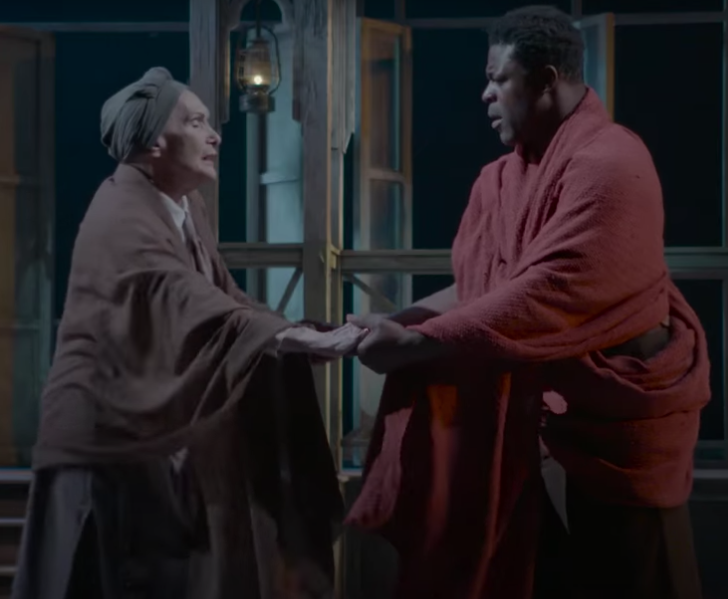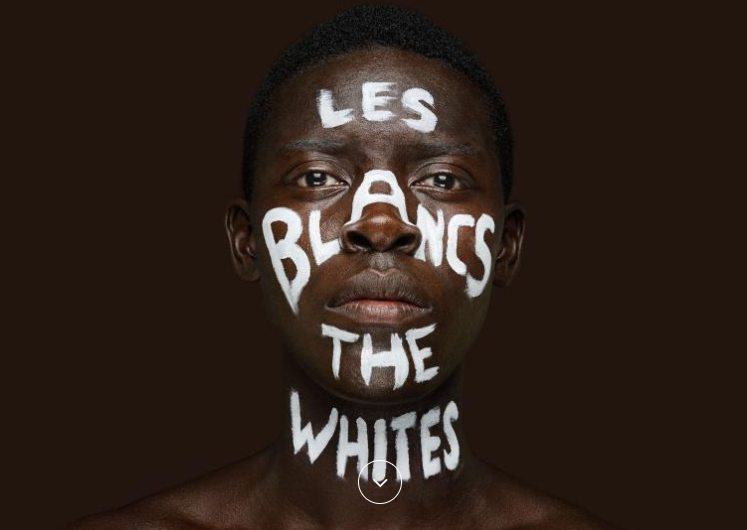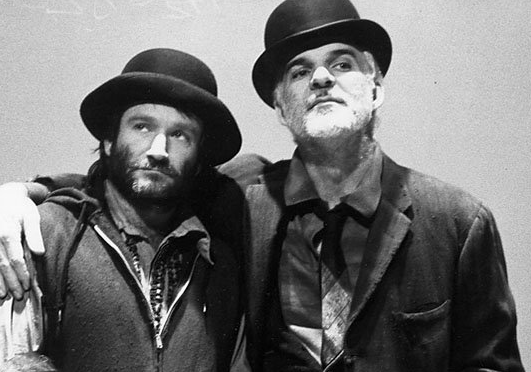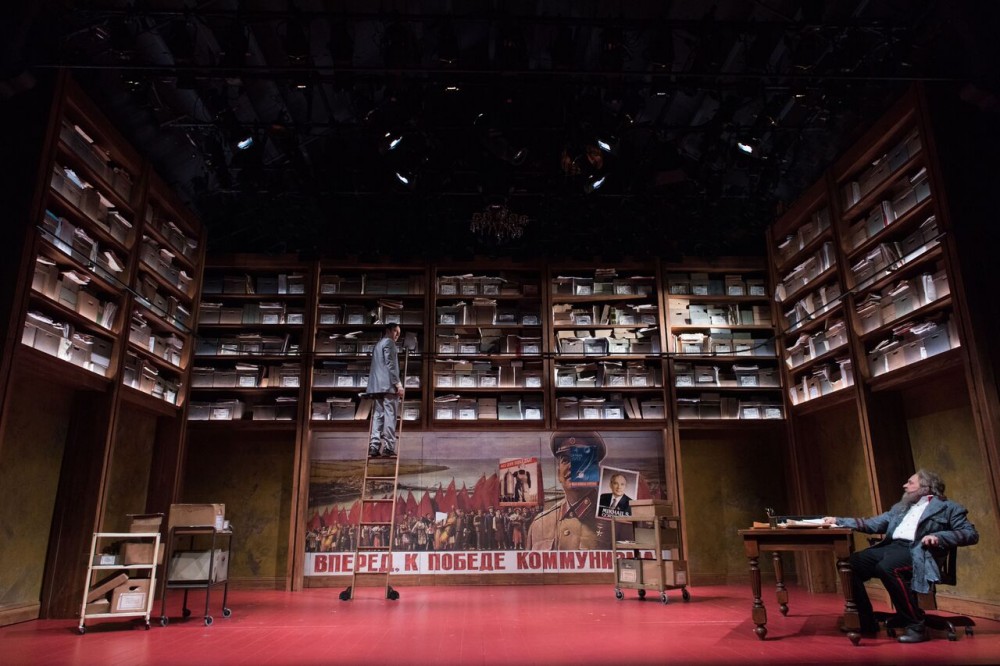
Siân Phillips, Danny Sapani
By Carol Rocamora
The sound will be ringing in your ears, long after the curtain call. It’s the low, deep, haunting sound of women’s voices, chanting in Xhosa, a language you won’t understand. But never mind – you’ll feel its effect. It surrounds you, engulfs you, permeating the atmosphere with its omnipresence and urgency. It’s a sound that won’t go away, like the curse of colonialism on Africa.
Les Blancs, Lorraine Hansberry’s powerful, unfinished epic was resurrected from theatre oblivion by the Royal National Theatre in 2016, thanks to the devoted collaboration of Robert Nemiroff (Hansberry’s former husband) and Joi Gresham, who adapted and restored the text. Les Blancs is now streaming on NT Live, and its timing couldn’t be more ideal, giving our focus on Black Lives Matter an even deeper and fundamental historical perspective.


Set at a mission station in an unnamed African country (c. 1950s), Les Blancs tells the story of Tshembe (Danny Sapani), who has returned from the UK for his father’s funeral. There, he gets caught up in the violent cross currents of a civil war, as his countrymen struggle to break the chains of cruel colonialism. Surrounded by irreconcilable conflicting forces, Tshembe – who had hoped to return to his white wife, son, and assimilated new life in the UK – finds himself paralyzed. His uncle Peter (Sidney Cole) advocates terrorism, while his priestly older brother Abioseh (Gary Beadle) insists on non-violence. Morris (Elliot Cowan), a visiting American journalist, promotes idealism, while Major Rice (Clive Francis), representing the local white authorities, tries to maintain order with an iron grip. As for the dedicated mission’s medical staff, Dr. Martha Gotterling (Anna Madeley) and Dr. Dekoven (James Fleet) remain politically neutral. Meanwhile, the head of the mission’s American-born wife, the saintly Mrs. Neilsen (Siân Phillips), is stoical: “In some ways, I am glad to be going blind,” she says. “The less one sees of this world, the better.”


But the ultimate pressure on Tshembe comes from the ghostly specter of a naked, emaciated, native woman (Sheila Atim), haunting Tshembe while the others clash around him. As Soutra Gilmour’s turnstile set rotates, she circles the stage, pursuing Tshembe, accompanied by that deep, dark chanting that crescendos to a frightening pitch. She’s like the ghost of Hamlet’s father, provoking a son paralyzed by inaction. At the moment when the conflicting forces become unbearable, this specter jumps on Tshembe’s back, wrapping her arms and legs around him. “I am just one man!” he cries out, provoked into a final act – and a terrible one.
Yaël Farber, born and raised in apartheid South Africa, is the ideal director for this forgotten play by one of our greatest 20th century playwrights (Hansberry, author of A Raisin in the Sun). “I felt that I was given something that was like a child being born at the moment of its mother’s death,” Ms. Farber said in a recent interview. Farber and her design team (lighting by Tim Lutkin, music and sound by Adam Cork, musical direction by Joyce Moholoagae) collaborate to bring Les Blancs to urgent life – at a crucial time when we must learn from the past in order to move into the future.
In the play’s finale, as the stage swirls in the chaos of conflict and the chorus swells to a howl, the specter reigns supreme – an image of centuries of the oppressed rising up once more. Will this be the final uprising? Hansberry (1931-1959) didn’t live to witness playwright Athol Fugard and activist Nelson Mandela vanquish over apartheid through non-violent means. As Tshembe prophesies: “It takes more than a spear to be a man in Africa.”
Les Blancs, by Lorraine Hansberry, adapted by Robert Nemiroff, restored text directed by Joi Gresham, directed by Yaël Farber at the Royal National Theatre (2016), live-streaming on NT Live through July 8 (3 hrs.)





















